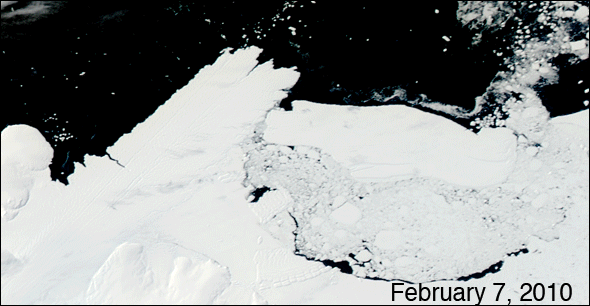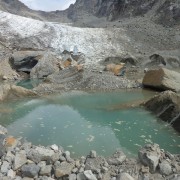Mississippi vs. Tennessee: Billion-dollar Supreme Court Question, “Is Memphis Stealing Water?”
 The Supreme Court will decide if Memphis, Tennessee has been stealing Mississippi’s groundwater since 1985 and, if guilty, the state would have to pay $1 billion in damages.
The Supreme Court will decide if Memphis, Tennessee has been stealing Mississippi’s groundwater since 1985 and, if guilty, the state would have to pay $1 billion in damages.
In February 2005, the state of Mississippi filed its first complaint that the city of Memphis was stealing water from part of the 7,000-square-mile Memphis Sands Aquifer that lies beneath Arkansas, Kentucky, Mississippi and Tennessee, according to The Commercial Appeal of Memphis. Three years later, U.S. District Judge Glen H. Davidson dismissed the lawsuit because Tennessee was not included in the league of defendants.
In June 2009, the Fifth Circuit Court of Appeals confirmed the judge’s dismissal, citing Tennessee as an “indispensable party.” The district court ruled that the shared aquifer was an inter-state issue and must be heard by the Supreme Court.
Mississippi filed a suit with the Supreme Court in September 2009 against Memphis and the Memphis Light, Gas, and Water (MLGW) utility–the largest three-service utility in the U.S.– seeking one billion dollars in damages.
According to court reports filed by Mississippi Attorney General Jim Hood, Memphis is “the largest city in the world that relies solely on groundwater wells for its water supply.” More than one million Memphis residents depend on the 160 million gallons per day pumped from the Memphis Sands Aquifer–60 million gallons of which Mississippi claims is stolen property.
Memphis and MLGW argue that the withdrawals are appropriate and within legal limits. If they lose, the utility will be forced to build a multi-million dollar water treatment plant for subsequent future withdrawals from the Mississippi River.
According to an article by Business TN, MLGW General Counsel Odell Horton Jr. said, “the utility spends $250,000 per year to support studies and other environmental testing to ensure the aquifer will remain safe and plentiful for generations to come.”
Before the Supreme Court case can begin, a study must be performed to determine how much of the aquifer belongs to each state, since the underground lake system is fluvial and dynamic. The federal common law doctrine “equitable apportionment” determines how resources such as water and wildlife are allotted to neighboring states.
To date, the Supreme Court has never applied this doctrine to an aquifer and its groundwater–although it has ruled for fluvial rivers like the Laramie River in 1922, the Delaware River in 1931, and the North Platte River in 1945, as well as hearing the current case between the Carolinas for the Catawba River.
Tennessee law does not equate surface and groundwater, nor does it have strict water regulations–provided that landowners make “reasonable use” of the groundwater beneath the surface without inhibiting the use of their neighbors. Mississippi has a much more modern permit system, which manages both surface and groundwater and limits water use to “reasonable and beneficial use”. However, because 89 percent of Mississippi public water is sourced from the ground, the state uses more more groundwater than any other state in the country. Despite Memphis’ reputation, Tennessee’s public withdrawals are only 36 percent groundwater.
Read more: here, here, here, here, here, and here.
is a Traverse City-based assistant editor for Circle of Blue. She specializes in data visualization.
Interests: Latin America, Social Media, Science, Health, Indigenous Peoples










Did the Supreme Court grant the petition to review the case? The article’s headline and subheadline seem to imply so, but I didn’t see any orders granting review from the Supreme Court. Very few of the petitions filed with the Supreme Court for review are eventually granted.
This is called original jurisdiction. It doesn’t grant cert as in most cases you hear about, rather it must hear the case as the only court with jurisdiction. The district court dismissed it because it can’t hear it; neither can the appellate court. http://en.wikipedia.org/wiki/Original_jurisdiction